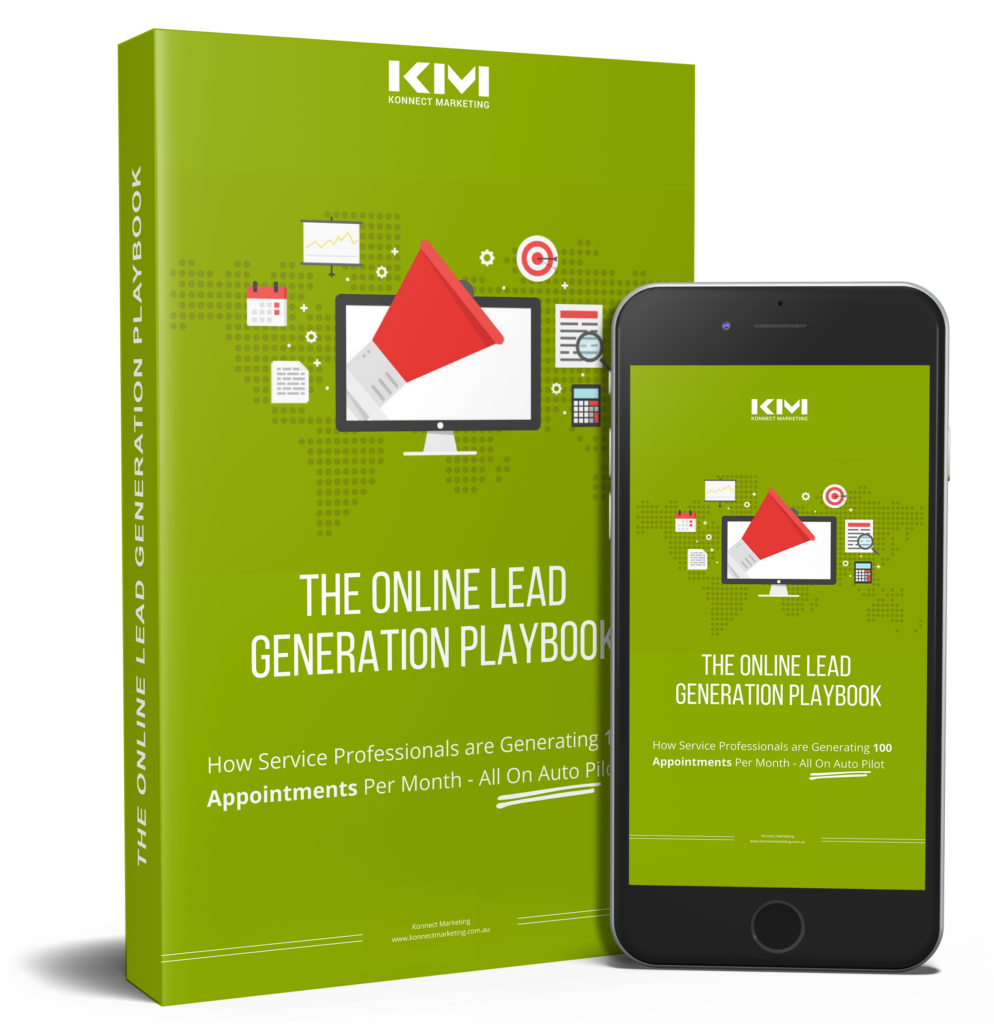
Imagine a steady stream of potential clients, all interested in your mortgage broker services. Sounds like a dream, right? But with the right lead generation strategies, this can become your reality. In today's digital age, traditional marketing methods are no longer enough to stay competitive. As a mortgage broker, you need to adapt and leverage modern techniques to attract more leads.
In Australia's bustling property market, there are countless individuals and businesses seeking expert guidance on mortgages. However, reaching these prospects requires more than just having an online presence. It involves understanding the intricacies of digital marketing, from SEO to social media campaigns - areas that might seem overwhelming if you're new to them.
This guide is designed for brokers like you who want to demystify the world of digital lead generation. We will break down what mortgage broker lead generation entails and why it’s essential for your business growth. So let's get started on transforming your approach towards attracting high-quality leads!
What is Mortgage Broker Lead Generation?

Lead generation, especially in the context of mortgage brokers, is a strategic process that involves attracting and converting potential clients into leads. These are individuals who have shown interest in your mortgage brokerage services. It's a crucial component of digital marketing that allows mortgage brokers to connect with their target audience, engage them effectively, and gradually guide them down the sales funnel.
The concept of lead generation for mortgage brokers revolves around creating strategies to attract potential customers and convert them into someone genuinely interested in your services. This process often involves collecting contact information from prospects through various marketing strategies such as content marketing, email newsletters, social media campaigns, and more.
In essence, mortgage broker lead generation is about fostering interest in your business offerings among prospective clients. It's about strategically positioning your brand so that when people think about mortgages or financial advice related to property loans, they think of you first.
The importance of effective lead generation for mortgage brokers cannot be overstated. In an industry where competition is fierce and customer loyalty can be fleeting at best, having a steady stream of new leads can make all the difference between success and failure.
Why is Lead Generation Important for Mortgage Brokers?
Lead generation plays an integral role in driving business growth for mortgage brokers. Without it, finding new clients would be like trying to find a needle in a haystack - time-consuming and inefficient at best.
A well-planned lead generation strategy not only helps attract potential customers but also enables businesses to maintain consistent clientele by keeping them engaged with relevant content or offers. This approach ensures that even if some leads do not convert immediately into paying customers, they remain within your sphere of influence until they're ready to take action.
Moreover, lead generation has significant implications on how sustainable your business model will be over time. According to HubSpot's 2020 State of Marketing report, companies that excel at lead nurturing generate 50% more sales-ready leads at a 33% lower cost.
In the context of mortgage brokers, lead generation is not just about getting people to your website. It's about attracting the right kind of visitors who are likely to convert into clients. This involves understanding your target audience, their needs and preferences, and creating marketing strategies that resonate with them.
As we move forward in this guide, we will discuss how mortgage brokers can effectively generate leads and grow their business. The next section will delve into various strategies that can be employed to attract potential customers and turn them into qualified leads.

The Online Lead Generation Playbook
How Service Professionals are Generating 100 Appointments Per Month - on Auto Pilot
How Can Mortgage Brokers Generate Leads?

In the competitive world of mortgage brokering, generating leads is a fundamental aspect that can make or break your business. The question then arises - how can mortgage brokers generate leads? There are numerous strategies available, each with its own set of advantages and potential pitfalls. From traditional methods like cold calling and networking to modern digital marketing tactics, the options are plentiful.
Buying Mortgage Leads
One common approach is buying mortgage leads from reputable sources. This involves purchasing contact information of potential clients who have expressed interest in securing a mortgage. While this method may seem straightforward, it's essential to ensure that you're sourcing these leads from credible providers. A poor-quality lead can result in wasted time and resources, while a high-quality lead could potentially convert into a lucrative deal.
The return on investment when buying leads should also be considered carefully. It's not just about the initial cost per lead; factors such as conversion rates and lifetime value of a customer play significant roles in determining whether this strategy is profitable for your business. For instance, if you purchase 100 leads at $20 each but only one converts into a client worth $2000 in commission, then you've made an excellent return on your investment.
Using Digital Marketing Strategies
Another effective way to attract potential clients is through digital marketing strategies such as Search Engine Optimisation (SEO), content marketing, social media marketing among others. SEO involves optimising your website so it appears higher in search engine results pages (SERPs). This increases visibility and attracts more organic traffic to your site – people who are actively searching for mortgage broker services.
Content marketing revolves around creating valuable content that resonates with your target audience – prospective homebuyers or property investors looking for financing options. By providing informative articles or insightful blog posts about the mortgage industry, you position yourself as an authority figure they can trust.
Social media platforms like Facebook and LinkedIn can also be leveraged to reach a wider audience. Regularly posting engaging content and interacting with followers can help build brand awareness and foster relationships with potential clients.
In conclusion, generating leads as a mortgage broker requires strategic planning and execution. Whether you choose to buy leads or use digital marketing strategies, it's crucial to monitor your results regularly and adjust your approach as needed. As the landscape of the mortgage industry continues to evolve, so too should your lead generation tactics. Now that we've discussed some effective ways of generating leads, let's move on to another critical aspect - how websites and landing pages can aid in this process.
How Can Websites & Landing Pages Help Generate Leads?

In the digital age, websites and landing pages have become essential tools for businesses to generate leads. A well-designed website acts as a virtual storefront, showcasing your services to potential clients 24/7. It's like having a dedicated salesperson working around the clock, attracting visitors and converting them into leads. According to Sweor, 75% of consumers admit to making judgements about a company’s credibility based on their website design.
A landing page, on the other hand, is a targeted platform designed specifically for lead generation. Unlike a general website that provides comprehensive information about your business, a landing page focuses on capturing visitor's contact information in exchange for something valuable - perhaps an informative eBook or exclusive access to webinar content. This exchange process is often facilitated by forms that are easy to fill out and submit.
The effectiveness of these platforms cannot be overstated; they're not just digital placeholders but powerful marketing tools that can significantly boost your lead generation efforts if used correctly. In fact, HubSpot reports that companies see a 55% increase in leads when increasing their number of landing pages from 10 to 15.
Optimising Your Website For Lead Generation
Creating an engaging and user-friendly website is key in attracting potential clients. The design should be visually appealing yet simple enough for users to navigate easily. Remember: you only have seconds to make an impression before visitors decide whether they want to stay or leave your site.
One crucial element often overlooked is the call-to-action (CTA). CTAs guide visitors towards taking specific actions such as signing up for newsletters or requesting more information about your services – essentially turning them into leads! A compelling CTA can dramatically increase conversions; WordStream found that emails with single call-to-action increased clicks by 371% and sales by 1617%.
However, it's not just about slapping any CTA on your website. It needs to be strategically placed and visually striking to draw attention. The language used should also create a sense of urgency and value, compelling visitors to act immediately.
In conclusion, optimising your website for lead generation involves more than just having an online presence. It requires strategic planning and execution to ensure that every element – from design to content – works together in harmony, driving traffic towards conversion points and ultimately generating leads for your business.
As we transition into the next topic, let's consider how social media platforms can also play a crucial role in lead generation.
How Can Social Media Be Used For Lead Generation?

In the digital age, social media has emerged as a powerful tool for lead generation. With over 3.6 billion people using social media worldwide, it provides an unprecedented platform to reach out to potential clients and generate leads. From Facebook to LinkedIn, Instagram to Twitter, each platform offers unique opportunities for businesses to connect with their target audience.
Social media platforms are not just about sharing personal updates or pictures; they have evolved into robust marketing channels that can be leveraged effectively for lead generation. For instance, LinkedIn, known as the professional network, is ideal for B2B lead generation. By creating a strong company profile and actively participating in relevant groups, businesses can attract potential clients interested in their services.
On the other hand, Facebook and Instagram are more suited for B2C businesses. With features like targeted ads and shoppable posts, these platforms allow businesses to reach out directly to consumers who might be interested in their products or services. The key here is understanding your target audience's preferences and tailoring your social media strategy accordingly.
Leveraging Social Media Platforms For Lead Generation
Leveraging social media platforms effectively requires a strategic approach tailored specifically towards your business goals and target audience's preferences. Here are some tips on how you can do this:
- Optimise Your Profiles: Your social media profiles act as your online storefronts; make sure they're inviting and informative enough to draw visitors in.
- Engage Regularly: Consistent engagement helps keep your brand at the top of mind among followers while also attracting new ones.
- Use Paid Advertising: Platforms like Facebook offer sophisticated targeting options that let you reach out directly to individuals who fit your customer profile perfectly.
- Share Valuable Content: Sharing useful content not only positions you as an authority but also attracts potential leads who find your content helpful.
- Monitor and Analyze: Keep track of your social media performance, analyze the data, and tweak your strategy as needed for better results.
Remember, lead generation via social media is not an overnight process. It requires patience, consistency, and a deep understanding of your target audience's needs and preferences. But with the right strategy in place, it can prove to be a game-changer for your business.
As we move forward in this digital era where networking plays a pivotal role in generating leads, it's essential to understand how you can leverage these platforms effectively.
What Role Does Networking Play In Generating Leads?

In the realm of mortgage brokerage, networking plays a pivotal role in generating leads. It's akin to casting a wide net in an ocean teeming with potential clients. When you network effectively, you're essentially creating a web of connections that can lead to referrals and new business opportunities. For instance, connecting with real estate agents could open doors to their clientele who are in need of mortgage services.
Networking isn't just about exchanging business cards at industry events; it's about building meaningful relationships that can foster mutual growth. A survey by HubSpot revealed that 85% of people say they build stronger, more meaningful business relationships during in-person business meetings and conferences. This statistic underscores the value of face-to-face interactions in establishing trust and rapport which are essential elements for successful networking.
Tips For Effective Networking
Effective networking is both an art and science. It requires strategic planning coupled with genuine interest in others' success. One key strategy is to focus on giving before receiving - offering help or advice without expecting anything immediately in return can create goodwill and strengthen professional relationships.
Attending industry events such as conferences or seminars is another crucial aspect of effective networking. These platforms provide opportunities for brokers to meet potential clients or partners, learn about market trends, and gain insights from experts within the industry. According to EventMB’s Event Statistics (2020 Edition), 95% of marketers agree that live events provide attendees with valuable opportunities to form connections - making them a must-attend for any broker looking to expand their network.
The power of networking cannot be underestimated when it comes to generating leads for mortgage brokers. By building strong professional relationships and leveraging these connections strategically, brokers can significantly increase their chances of attracting new clients.
As we transition from discussing the importance of networking, let's shift our focus towards another powerful tool for lead generation - content marketing.
How Can Content Marketing Help In Lead Generation?

Content marketing is a powerful tool that can significantly boost lead generation for mortgage brokers. It works by creating and sharing valuable, relevant content to attract and engage a clearly defined audience - in this case, potential mortgage clients. This approach aims to stimulate interest in your services rather than explicitly promoting them. For instance, you might publish an informative blog post about the benefits of fixed-rate versus adjustable-rate mortgages. A potential client searching for this information could find your post, learn something valuable, and then be more likely to consider your services when they're ready to secure a mortgage.
The beauty of content marketing lies in its ability to build trust with potential clients before they even make contact with you. By providing free, high-quality information that helps them understand complex mortgage concepts or navigate the home-buying process, you position yourself as an expert in your field. This not only increases your visibility online but also establishes credibility with your audience. According to Demand Metric, 70% of people would rather learn about a company through articles rather than advertisements.
Creating Engaging Content For Your Audience
Creating engaging content begins by understanding who your audience is and what kind of information they are looking for. As a mortgage broker, your target audience might include first-time homebuyers who need guidance on how the mortgage process works or property investors looking for tips on securing the best loan rates. By identifying these personas and their needs, you can create tailored content that speaks directly to them.
A good starting point is writing informative blogs about various aspects of mortgages – from explaining different types of loans available to offering advice on improving credit scores for better loan terms. You could also create ebooks or whitepapers that delve into more detail about specific topics like investment property financing or refinancing options.
Remember that quality trumps quantity when it comes to content creation: according to HubSpot's State of Marketing Report 2020, 70% of marketers are actively investing in content marketing. This means that your audience likely has a wealth of information at their fingertips – so to stand out, you need to offer unique insights and expert advice that they can't find elsewhere.
Visual content is also an effective way to engage your audience. Infographics, for example, can simplify complex mortgage concepts into easy-to-understand visuals. Videos too can be a great tool for explaining processes or offering step-by-step guides. According to a report by HubSpot, 54% of consumers want to see more video content from brands or businesses they support.
As we delve deeper into the world of lead generation for mortgage brokers, it's essential not only to understand how content marketing works but also how it integrates with other tools and strategies such as Customer Relationship Management (CRM) systems.
What is CRM & How Can It Help In Lead Generation?

Customer Relationship Management, or CRM, is a technology that manages all of your company's relationships and interactions with potential and current customers. It's a powerful tool that helps businesses stay connected to their audience, streamline processes, and improve profitability. When it comes to lead generation, CRM plays an instrumental role.
It allows businesses to track every interaction with prospects from the initial contact through the entire sales process. This means you can monitor leads' behaviour, identify patterns, and use this data to refine your marketing strategies. For instance, if you notice that a significant number of leads are coming from social media platforms like LinkedIn or Facebook, you could invest more resources into these channels.
A well-implemented CRM system can also automate many aspects of lead management. From sending personalised emails based on customer behaviour to scheduling follow-up calls at optimal times - automation saves time and ensures no lead falls through the cracks. According to Salesforce's "State of Marketing" report in 2020, 67% of marketing leaders currently use some form of marketing automation.
Moreover, CRMs provide valuable insights about your leads such as their preferences and pain points which can be used for creating targeted campaigns that resonate with them. As per Nucleus Research study in 2017 found that companies using CRM software saw an average ROI (return on investment) of $8.71 for each dollar spent.
Choosing The Right CRM For Your Business
Choosing the right Customer Relationship Management (CRM) system for your business isn't always straightforward; there are several factors you need to consider before making a decision.
Firstly, think about what features are most important for your business operations - do you need advanced analytics? Or perhaps integration capabilities with other tools like email marketing software or social media platforms? Make sure the CRM system offers these functionalities.
Next up is ease-of-use; a CRM system that's difficult to navigate can slow down your team and reduce efficiency. Look for a platform with an intuitive interface and robust customer support. According to a study by Capterra, 47% of CRM users said ease of use is the most important feature in a CRM.
Budget is another crucial consideration; while some CRMs offer free versions, these often come with limited features. Paid options typically provide more comprehensive services but can vary significantly in price. It's essential to find a solution that fits within your budget without compromising on necessary features.
Lastly, consider scalability - as your business grows, so will your CRM needs. Choose a system that can adapt and grow with you. A survey by FinancesOnline revealed that 87% of businesses wanted their CRM software to be scalable and customisable.
| CRM Features | Benefits |
|---|---|
| Advanced Analytics | Provides valuable insights into customer behavior and preferences. |
| Integration Capabilities | Allows seamless integration with other tools like email marketing software or social media platforms. |
Book a demo now and get a 14-Day FREE trial.
Conclusion
At Konnect Marketing, we understand that the world of digital marketing can be overwhelming, especially when you're trying to juggle running a business like John. That's why we offer comprehensive services tailored to your specific needs and industry. We've worked with mortgage brokers just like you, helping them generate high-quality leads through effective SEO, social media marketing, web design, and more.
We believe in providing value for your investment by not only attracting attention to your business but also earning customer loyalty. Our team is experienced in working with various industries including finance, real estate, and legal sectors. So whether you're a small local business or a large enterprise, we have the skills and knowledge to help you succeed online.
Key Takeaway
Digital marketing doesn't have to be confusing or time-consuming. With Konnect Marketing by your side, you can focus on what you do best - serving your clients - while we handle generating those much-needed leads. If you're ready to take the next step towards growing your mortgage broking business online, why not schedule a free strategy call with us? Let's create a unique digital marketing strategy designed specifically for your business.
TAKE YOUR MARKETING TO THE NEXT LEVEL!
Increase your web traffic, and convert leads to clients with our SEO strategy.
Frequently Asked Questions about Mortgage Broker Lead Generation
What is mortgage broker lead generation?
Mortgage broker lead generation is the process of attracting potential home buyers and refinancers to a mortgage broker in order to generate new business leads. This is typically done through digital marketing campaigns like search engine optimisation, social media advertising, and email marketing.
How does mortgage broker lead generation work?
Mortgage brokers will use various online and offline marketing tactics to get their name and services in front of potential customers. When a potential borrower expresses interest by contacting the broker or submitting a lead form, their contact information is captured. The broker can then follow up with the potential customer to learn about their financing needs and provide mortgage options and quotes.
What are some common mortgage broker lead generation strategies?
Some of the most popular strategies include search engine optimisation to rank higher in search results, pay-per-click advertising on search engines and social media platforms, direct mail and email marketing campaigns, partnering with real estate agents and other referral sources, and using online lead capture forms on the broker's website.
How much does mortgage broker lead generation cost?
The cost of lead generation for mortgage brokers can vary significantly depending on the specific tactics and volume. On average, brokers should budget anywhere from $100-300 per quality lead generated through digital marketing. Traditional tactics like direct mail or radio/TV ads tend to be more expensive at $500+ per lead. Ongoing optimisation is key to improving ROI over time.
How quickly can mortgage brokers see results from lead generation?
Most mortgage brokers will start to see some new leads coming in within the first 30 days of launching digital marketing campaigns. However, it typically takes 60-90 days for campaigns to really start generating quality leads on a consistent basis as content is optimised and campaigns are refined. Brokers need patience, as lead generation is a longer-term strategy.
What are the key performance metrics for mortgage broker lead generation?
Some of the top metrics to track include cost per lead (CPL), lead-to-loan conversion rate, return on ad spend (ROAS), and monthly/quarterly goals for new clients or funded loans. CPL shows efficiency, while conversion rate indicates lead quality. ROAS proves profitability of campaigns.
How can brokers qualify mortgage leads?
Brokers should have a process to quickly qualify incoming leads to determine their level of interest, timeline, and financial qualifications. This involves gathering basic information like income, assets, debt, and property details. Unqualified leads can then be nurtured with educational content until they are ready to apply.
What are some tips for optimising mortgage broker lead generation?
Test different ad creative, landing pages, and call-to-action buttons. Analyze metrics to kill underperforming campaigns. Refine messaging based on highest converting ads. Retarget past leads and clients. Leverage reviews and social proof. Continuously create and share educational content. Improve website usability and conversion points.
How can brokers convert more mortgage leads into clients?
Brokers need to provide an excellent customer experience from the first interaction. They should be prompt, knowledgeable, and personable in all communications. Quickly understanding a potential borrower's full situation and clearly explaining options and the process builds trust. Closing the loan smoothly further solidifies them as a client and referral source.
What are some alternatives to paid mortgage lead generation?
In addition to paid tactics, brokers can generate leads through partner referrals, social media engagement, blogging/article distribution, email nurturing campaigns, community involvement, and word-of-mouth/referrals from happy past clients. While slower, these free methods help build organic visibility and trust over the long run.


